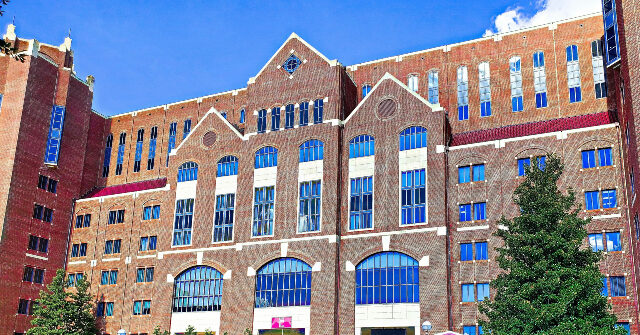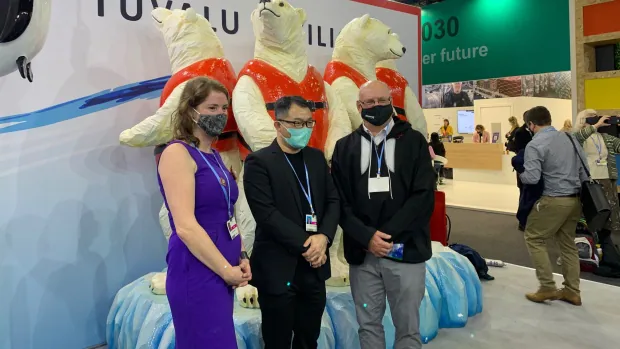At the COP26 climate summit in Glasgow, Indigenous people were “embarrassingly” not included in the N.W.T.’s delegation, even though their voices should be at the forefront of climate action, delegate and MLA Katrina Nokleby said in a press conference Wednesday.
That’s a lesson that the environment department and executive and Indigenous affairs will likely carry into the next UN climate summit, said Nokleby.
Environment Minister Shane Thompson said they reached out to Indigenous governments and met with N.W.T. climate activists, but because the territory’s delegation was part of Canada’s broader delegation, they didn’t have a choice in who they could take.
“It would have been nicer for us to have more Indigenous people from the Northwest Territories and Canada, but I think the messaging that we were able to share … didn’t do a disservice,” said Thompson.
Sharing stories of flooding, coastal erosion
Thompson said at COP26, he shared the stories of catastrophic floods that displaced residents in Jean Marie River and Fort Simpson this year.
In Tuktoyaktuk, the community’s shoreline is slowly falling into the sea, forcing the community to evaluate options such as relocating structures, mitigating structures to defend themselves from erosion and even total relocation. Thompson said the community will be underwater in 2050.

Thompson says the N.W.T. needs federal support to adapt to climate change by building the Mackenzie Valley Highway, the Taltson expansion, alternative energy projects and research in community adaptation.
Thompson told Steven Guilbeault, who was on day 11 of his new job as federal environment minister, that the N.W.T. needs federal money to move these projects ahead.
“The Northwest Territories cannot reach these targets committed by Canada without significant additional federal investment and support,” said Thompson.
N.W.T. responsible for 0.2 per cent of Canada’s emissions
The N.W.T. makes up 0.2 per cent of Canada’s emissions. Nunavut accounts for just 0.1 per cent of Canada’s emissions, states a report from the Canadian government.
Canada’s top five emitters — Alberta, Ontario, Quebec, Saskatchewan and B.C. — are responsible for 91 per cent of Canada’s greenhouse gas emissions in 2019.

Asked for specific actions the N.W.T. will take that emerged from COP26, Thompson said the N.W.T. will continue to follow its climate action plan for 2030 and meet four times a year with the climate change council.
Manager of climate change and air quality, environment and natural resources, Cory Doll, said Indigenous voices will be heard through a youth council, which will advise the N.W.T.’s climate change council, which is made up of Indigenous governments, water boards and non-governmental organizations.
N.W.T.’s ‘real role’ is to amplify Indigenous stories
While no member of the N.W.T. delegation from the territory was Indigenous, residents like Daniel T’seleie who is K’asho Got’ine Dene from Fort Good Hope, went as part of an Indigenous delegation organized by Indigenous Climate Action.
But T’seleie didn’t take part in the conference — he protested it.
Outside the doors of COP26, T’seleie helped coordinate direct actions that “create space for Indigenous people to tell their stories” about their frontline experiences with fossil fuel industries.

“There are a lot of special interest and lobby groups pushing their own agenda. At the end of the day, the actual negotiation outcome is considered inadequate by civil society resulting in a combination of disappointment and grief,” he said.
“Our faith is not placed in the United Nations or in these governments to solve the problem of climate change,” he said.
He says that while the N.W.T. can take specific actions to cut emissions, such as taking communities off diesel and shifting from boom and bust economies, its “real role” is to amplify the stories of Arctic Indigenous nations at the “front lines of climate change.”
“We need to use that voice … to influence what is happening in other political jurisdictions and I think that’s something that the government of the Northwest Territories can and should be spearheading.


















Discussion about this post